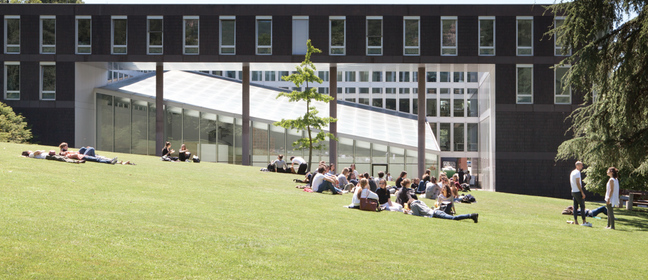Università della Svizzera Italiana (USI)

About

Università della Svizzera italiana (USI) is one of the 12 certified public universities in Switzerland and member of swissuniversities. It comprises of five faculties and is active in several study and research areas: architecture, communication sciences, computational science, data science, economics, health studies, humanities, informatics, law, medicine and biomedicine.
Around 3000 students and about 800 professors and researchers, hailing from over 100 countries, convene every day on the three campuses in Lugano, Mendrisio and Bellinzona. The relatively small size of the campuses encourages the free flow and open exchange of ideas within the academic community. USI encourages faculty, students and researchers to develop their potential, and appreciates their curiosity and willingness to experiment with new ways of teaching, thinking, and working.
On October 3rd, 1995, the Ticino parliament (Grand Council) approved the Law on the Università della Svizzera italiana, thus establishing a public university with three faculties, designed to stand out for their novelty within the Swiss university system: the Academy of Architecture, born from an idea of architect Mario Botta, the Faculty of Economics and the Faculty of Communication Sciences. One year later, upon formal approval by the Swiss Science and Innovation Council, on October 21st, 1996 USI opened its doors to the first enrolled students and gave its first classes.
In 2004, the Faculty of Informatics was inaugurated, with the purpose to address the challenges of society’s digital revolution. In 2007, the Institute of Italian Studies is created within the Faculty of Communication Sciences, enhancing USI’s role in promoting multilingualism in Switzerland and forming the ideal venue for combining Swiss identity and Italian civilization. In 2014 the institution of the Faculty in Biomedical Sciences was approved, representing thus the contribution of USI in solving an urgent national problem, the dearth of medical doctors trained in Switzerland.